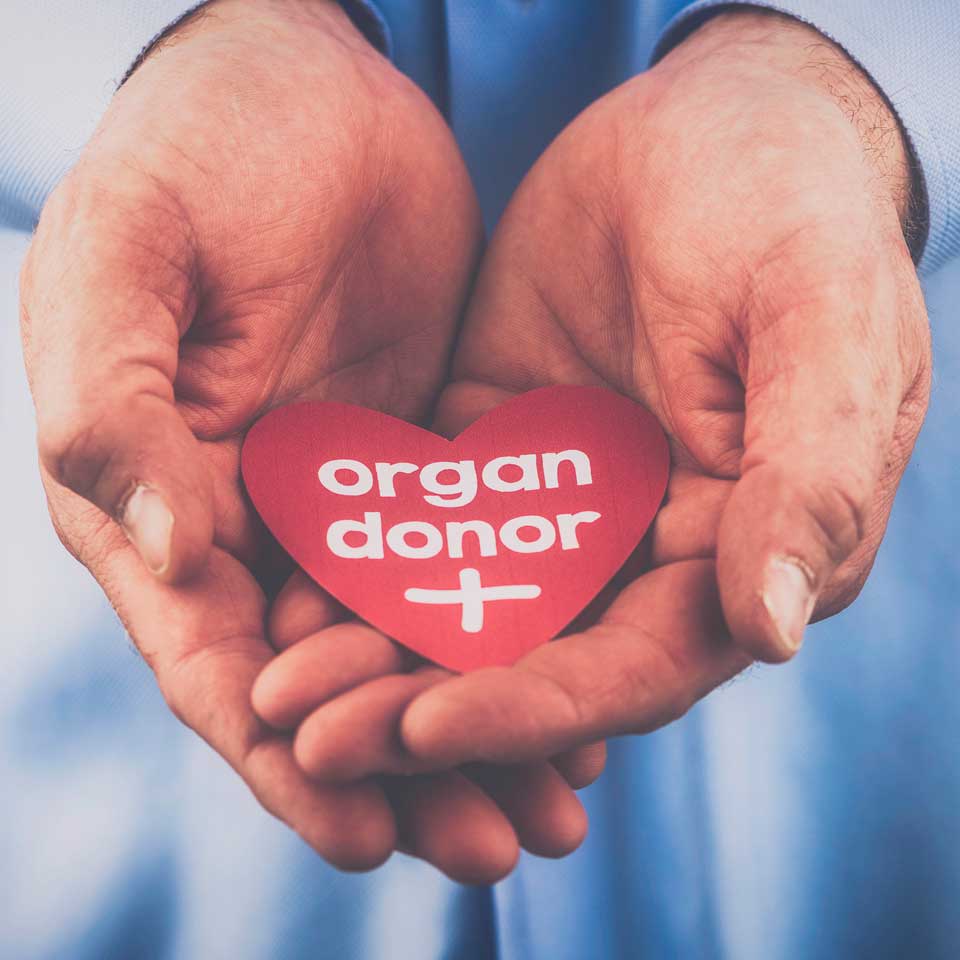Organ Donation Myths
January 25, 2021
Sometimes, myths and misconceptions about organ, eye and tissue donation can prevent someone from registering as a donor, according to Organdonor.org. You can help bust the myths about organ donation – and help save lives – by learning and sharing these facts.

Sometimes, myths and misconceptions about organ, eye and tissue donation can prevent someone from registering as a donor, according to Organdonor.org. You can help bust the myths about organ donation – and help save lives – by learning and sharing these facts.
Myth: I have a medical condition, so I can’t be a donor.
Anyone, regardless of age or medical history, can sign up to be a donor. The transplant team will determine at an individual’s time of death whether donation is possible. Even with an illness, you may be able to donate your organs or tissues.
Myth: I’m too old or too young to be a donor.
There’s no age limit to organ donation. To date, the oldest donor in the United States was age 93. What matters is the health and condition of your organs when you die. Many states allow people who are younger than 18 to register as organ donors, but the final decision will remain the responsibility of the parents or legal guardian. Keep in mind that children are also in need of organ transplants, and they usually need organs smaller than those an adult can provide.
Myth: I don’t think my religion supports donation.
Most major religions in the United States support organ donation and consider donation as the final act of love and generosity toward others.
Myth: If they see I’m a donor at the hospital, they won’t try to save my life.
When you are sick or injured and admitted to a hospital, the one and only priority is to save your life. Period. Donation doesn’t become a possibility until all lifesaving methods have failed. Myth: Rich or famous people on the waiting list get organs faster. A national computer system matches donated organs to recipients. The factors used in matching include blood type, time spent waiting, other important medical information, how sick the person is and geographic location. Race, income and celebrity status are never considered.
Myth: My family won’t be able to have an open casket funeral if I’m a donor.
An open casket funeral is usually possible for organ, eye and tissue donors. Through the entire donation process, the body is treated with care, respect and dignity.
Myth: I’m not in the best of health. Nobody would want my organs or tissues.
Very few medical conditions automatically disqualify you from donating organs. The decision to use an organ is based on strict medical criteria. It may turn out that certain organs are not suitable for transplantation, but other organs and tissues may be fine. Don’t prematurely disqualify yourself. Only medical professionals can determine whether your organs are suitable for transplantation at the time of your death.
Myth: My family will be charged if I donate my organs.
The organ donor’s family is never charged for donation. The family is charged for the costs of all final efforts to save your life, and those costs are sometimes misinterpreted as costs related to organ donation. Costs for organ removal go to the transplant recipient.
Myth: Only the deceased can donate organs.
Living donors are crucial. The popularity of living-organ donation – particularly for kidneys – has increased substantially in recent years, as people have become more aware of what a difference it makes. A transplantation from a living donor can also be planned and scheduled, so the patient receiving the organ can have family around to help.
Reference -Organdonor.org, Mayo Clinic
